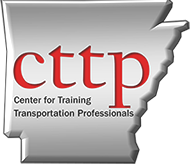National Pollutant Discharge Elimination System (NPDES)
This course covers topics pertaining to erosion and sediment control, including laws and regulations, best management practices, design, and inspection. This course is offered in both in-person and online formats. Learn more about the Online NPDES course.
Pre-Requisite Requirements
This course is not intended to provide basic training, but rather to serve as a refresher and evaluation. Field inspection or other similar experience is strongly recommended. Prior to attending the course, participants should have a working knowledge of construction practices associated with erosion and sediment control (ES&C), including:
- The SWPPP documents
- Seeding and mulching
- Tracking
- Silt fence
- Ditch checks
- Diversion ditches
- Stream protection
- Basic installation and maintenance procedures
- Inspection documentation
Online review materials may also be beneficial in preparing for the class.
Specifications
The procedures covered are those prescribed by the Arkansas Department of Transportation (ARDOT) Standard Specifications for Highway Construction, the current NPDES general construction permit as designated by the Arkansas Department of Environmental Quality (ADEQ), and the most recent revision of the ARDOT Erosion and Sediment Control Design and Construction Manual. During the exam, participants will be responsible for the following topics:
- Basic concepts involving erosion and sedimentation
- Basic knowledge of the ADEQ general construction permit
- Requirements for acquiring coverage under the general ADEQ permit
- Components of the Storm Water Pollution Prevention Plan (SWPPP)
- Temporary erosion and sediment control measures
- Permanent erosion and sediment control measures
- Appropriate uses for Best Management Practices (BMPs)
- Maintenance of BMPs
Supplies and Equipment
All necessary equipment and supplies used in the NPDES course will be furnished by CTTP. A course notebook and pencil is provided to each participant. Calculators may be borrowed from CTTP; however, participants are often more comfortable bringing a calculator with which they are familiar, and routinely use. Other items that may be useful include a straightedge or ruler, pen, pencil, and highlighter.
The NPDES course does not contain a laboratory component. Thus, CTTP course participants are required to dress in a professional manner appropriate for the classroom setting, including long pants and closed-toe shoes.
Course Schedule
Each NPDES course will begin at 8:30 am on Day 1 unless otherwise stated, with check-in from 8:00 am to 8:30 am. Classroom instruction will be provided on Day 1. A written exam will be given on Day 2, with the course concluding by noon on Day 2. Participants who do not attend the entire class will not be allowed to take the exams. More information can be found in the Detailed Course Schedule.
Exams
The NPDES certification requires a passing score on a written exam. The written exam is closed-book, and covers the material presented in class. There is a two-hour time limit for the written exam, and a minimum score of 70% is required to pass.
Participants who do not pass the NPDES course will be required to repeat the entire course.
Certification
Upon successful completion of the written exam, participants will receive a five-year certification in National Pollutant Discharge Elimination System (NPDES) from CTTP. Certified individuals will receive a CTTP certificate and pocket card, and will be added to the CTTP website list of Certified Technicians. Expiration dates occur on a semi-annual basis, and will be either June 30 or December 31 after the five-year certification period.
Recertification in NPDES may be achieved by successful completion of the standard 1 ½ day NPDES course or the online NPDES course.
Reciprocity requests will not be granted for the CTTP National Pollutant Discharge Elimination System (NPDES) certification
Registration
ARDOT employees may register for this course by contacting Dorothy Rhodes at dorothy.rhodes@ardot.gov . All others should Click Here to Register. Applicable fees will be assessed.
